Horseradish Care In Pots: How To Grow Horseradish In A Container
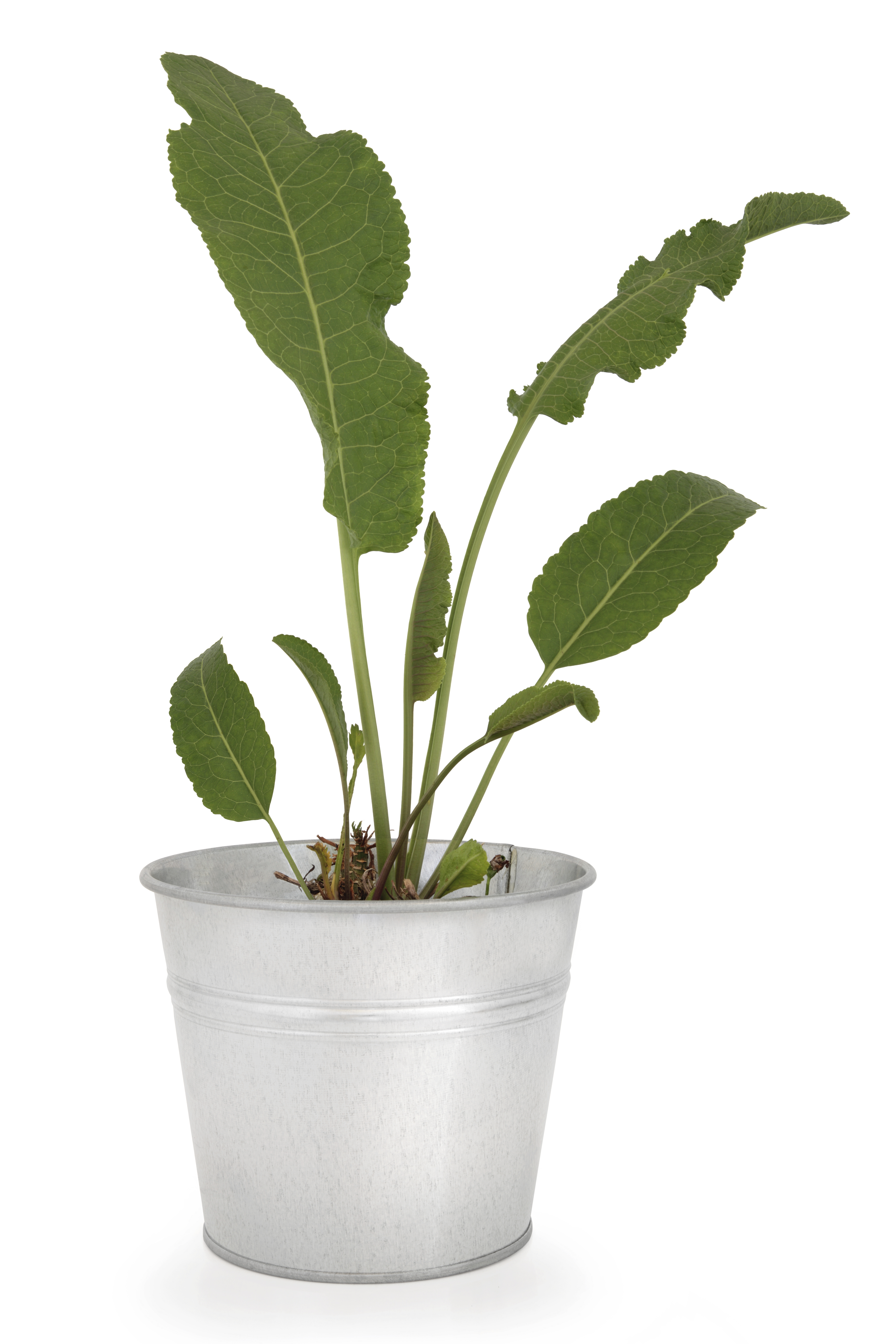
If you have ever grown horseradish, then you are only too well aware that it can become quite invasive. No matter how carefully you dig it up, there will undoubtedly be some bits of root left behind, which will then be only too happy to spread and pop up everywhere. The solution, of course, would be container grown horseradish. Keep reading to find out how to grow horseradish in a container.
Horseradish History
Before we get into horseradish container growing, I want to share some interesting horseradish history. Horseradish originated in southern Russia and the eastern region of Ukraine. An herb, it has traditionally been grown for centuries for not only culinary use but medicinal use as well. Horseradish was incorporated into the Passover Seder as one of the bitter herbs during the Middle Ages and is still used to this day. In the 1600s, Europeans were using this spicy plant in their foods. In the mid-1800s, immigrants brought horseradish to the United States with the intention of developing a commercial market. In 1869, John Henry Heinz (yes, of Heinz ketchup, etc.) made and bottled his mother’s horseradish sauce. It became one of the first condiments sold in the United States, and the rest is history as they say. Today, most commercially grown horseradish is grown in and around Collinsville, Illinois – which refers to itself as “the horseradish capital of the world.” It’s also grown in Oregon, Washington, Wisconsin, and California as well as in Canada and Europe. You, too, can grow horseradish. It can be grown as an annual or as an herbaceous perennial in USDA zone 5. I couldn’t resist imparting some interesting facts, but I digress, back to planting horseradish in pots.
How to Grow Horseradish in a Container
Horseradish is grown for its pungent, spicy taproot. The plant itself grows in clumps with the leaves radiating out from that root. It grows to between 2 and 3 feet (61-91 cm.) in height. The leaves may be heart-shaped, tapering, or a combination of both and may be smooth, crinkled, or lobed. The plant blooms in late spring to early summer and becomes a fruit that contains four to six seeds. The main taproot, which can reach more than a foot (31 cm.) in length, is off-white to light tan. The whole root system can be several feet long (1 m.)! That’s why container grown horseradish is a great idea. You would have to dig a heck of a hole to get the entire root system out and, if you don’t, here it comes again, and with a vengeance the next season! When planting horseradish in pots, choose a pot that has drainage holes and is deep enough to encourage root growth of 24 to 36 inches (61-91 cm.) deep. Although horseradish is cold hardy, plant your container grown root after all danger of frost has passed, or start it indoors. Take a 2 inch (5 cm.) piece of root cut at a 45-degree angle. Place the piece vertically in the pot and fill it in with potting soil amended with compost. Cover the root over with one inch (2.5 cm.) of the soil mix and one inch (2.5 cm.) of mulch. Keep the soil moist, but not wet, and place the pot in a full sun to semi-shady area.
Horseradish Care in Pots
Now what? Horseradish care in pots is pretty nominal. Since pots tend to dry out more quickly than in gardens, keep a close eye on moisture; you may have to water more often than if the root was in the garden. Otherwise, the root should begin to leaf out. After 140 to 160 days, the taproot should be ready to harvest, and you can make your own version of Mr. Heinz’s mom’s horseradish sauce.
Gardening tips, videos, info and more delivered right to your inbox!
Sign up for the Gardening Know How newsletter today and receive a free copy of our e-book "How to Grow Delicious Tomatoes".

Amy Grant has been gardening for 30 years and writing for 15. A professional chef and caterer, Amy's area of expertise is culinary gardening.
-
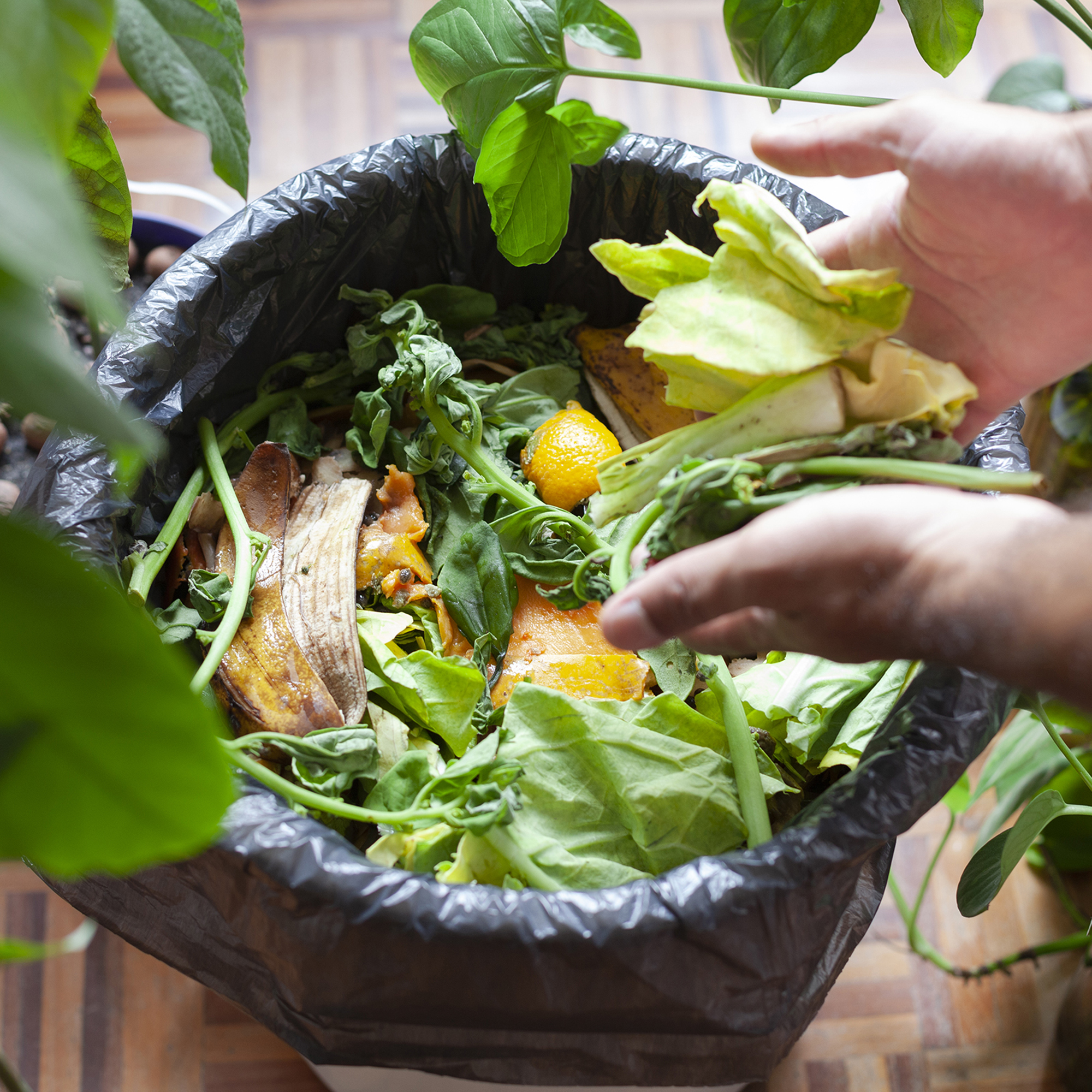 4 Superfast Composting Methods: Turn Waste Into Garden Gold In 30 Days Or Less
4 Superfast Composting Methods: Turn Waste Into Garden Gold In 30 Days Or LessTry the fastest composting methods to turbocharge your pile and transform kitchen scraps and garden waste into finished compost in just a few weeks.
By Mary Ellen Ellis
-
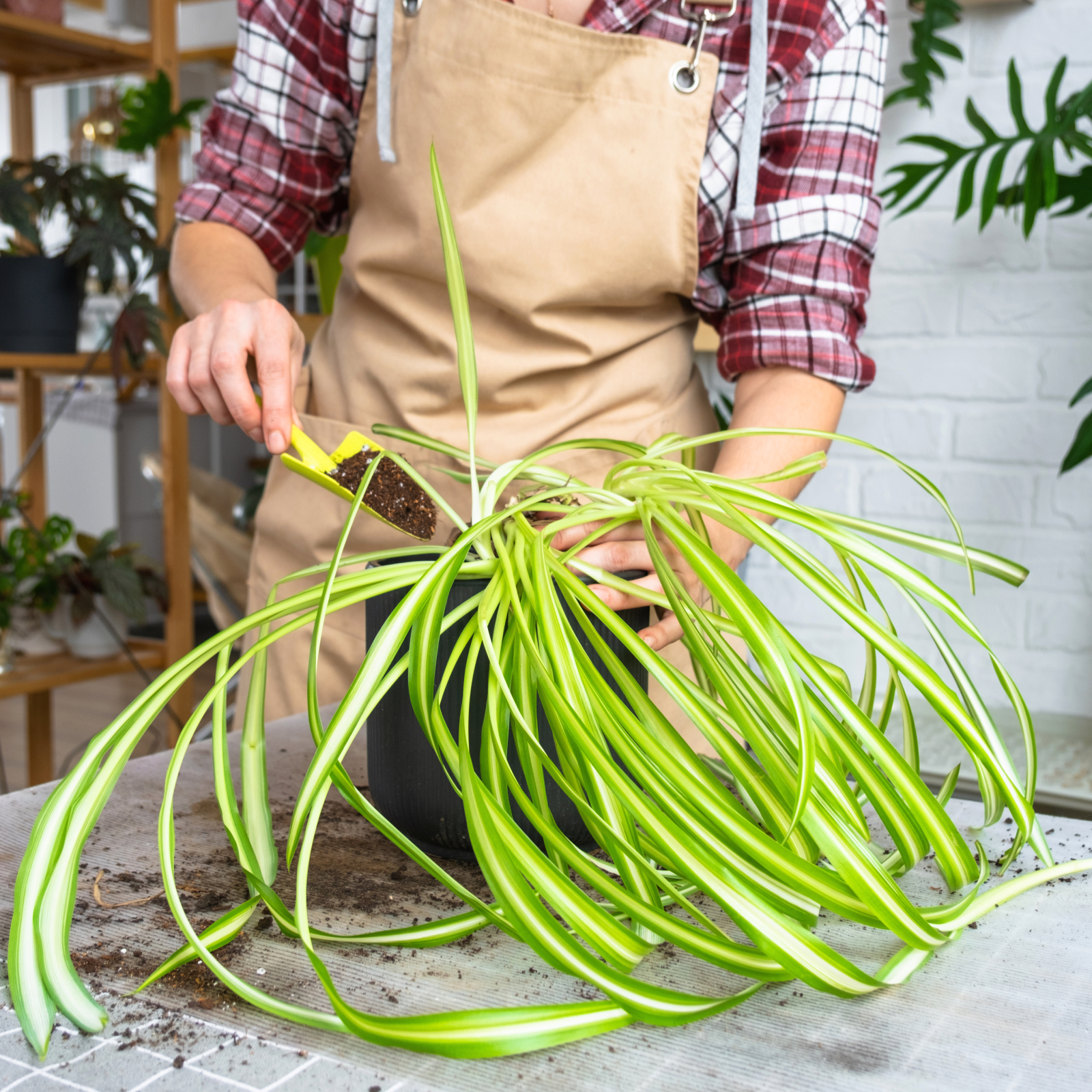 Best Spider Plant Soil – Complete Soil Guide And Expert Tips For Keeping Plants Happy
Best Spider Plant Soil – Complete Soil Guide And Expert Tips For Keeping Plants HappySpider plants are fun and easy plants to grow, but what is the best soil for a spider plant? Selecting the right soil is important so they can thrive.
By Bonnie L. Grant
-
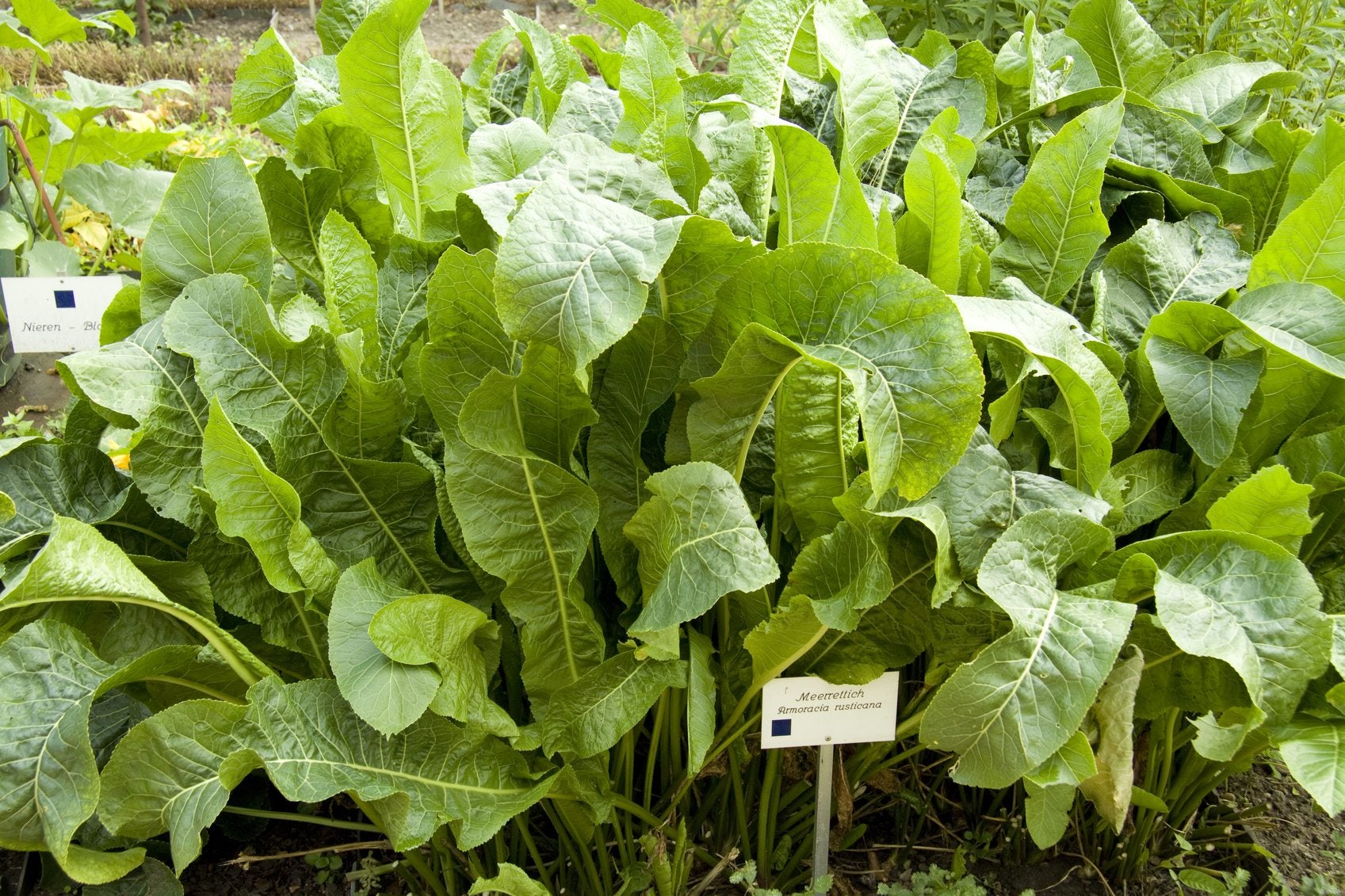 Propagation Of Horseradish: How To Divide A Horseradish Plant
Propagation Of Horseradish: How To Divide A Horseradish PlantDividing horseradish plants becomes a necessity, as they can become invasive. The following article contains information on how to divide a horseradish plant and other useful information on horseradish root division.
By Amy Grant
-
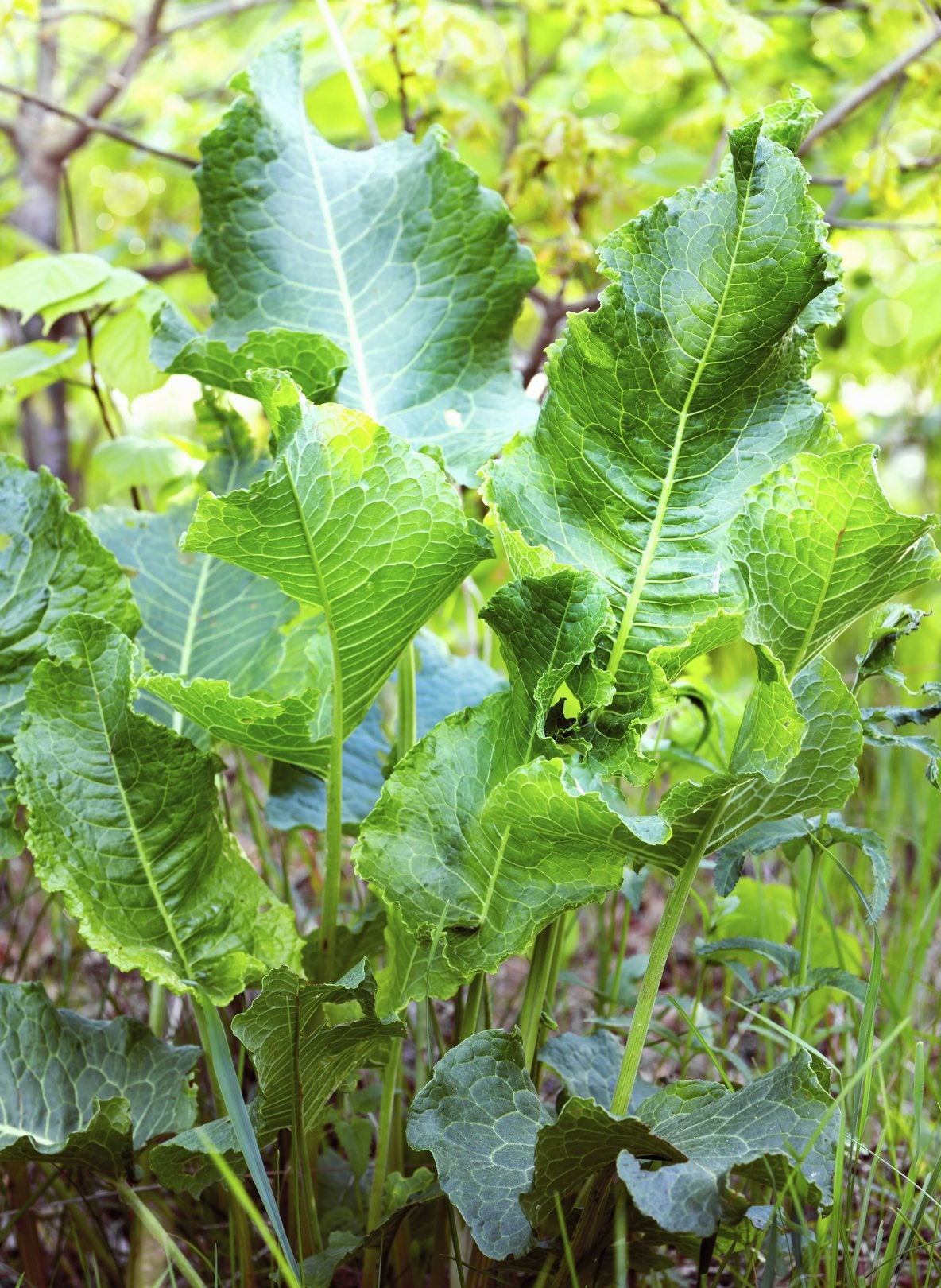 Horseradish Plant Companions: What Grows Well With Horseradish Plants
Horseradish Plant Companions: What Grows Well With Horseradish PlantsFresh horseradish is absolutely delicious and the good news is it's easy to grow your own. It is also healthy so companion plants for horseradish might get a huge benefit. Find out about companion planting with horseradish in this article.
By Amy Grant
-
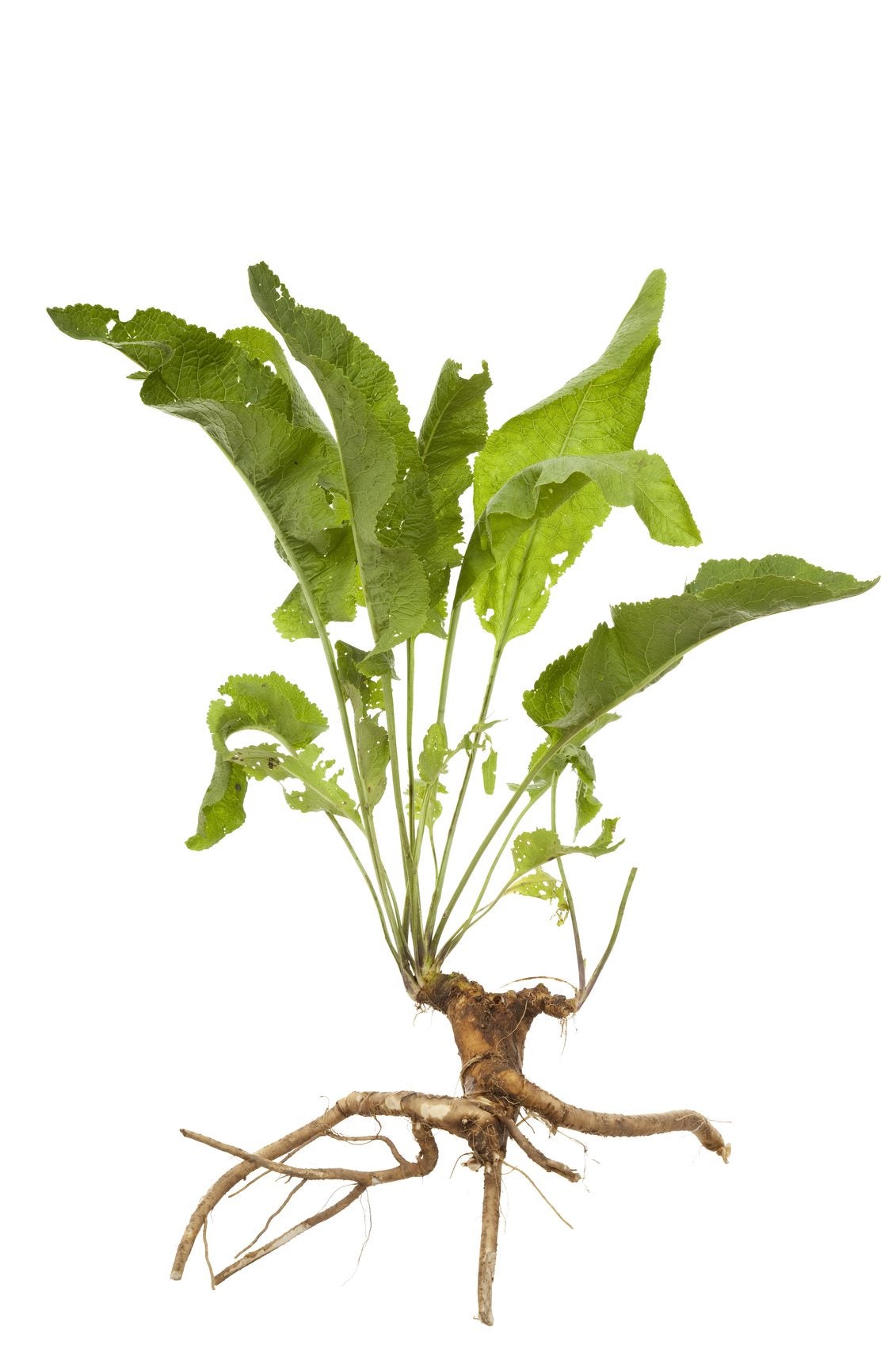 Horseradish Harvesting – When And How To Harvest Horseradish Root
Horseradish Harvesting – When And How To Harvest Horseradish RootHarvesting horseradish plants is a simple task and the resulting condiment can be stored in the refrigerator for up to 6 weeks. Find out how and when to harvest horseradish root in the garden by clicking this article for more information.
By Amy Grant
-
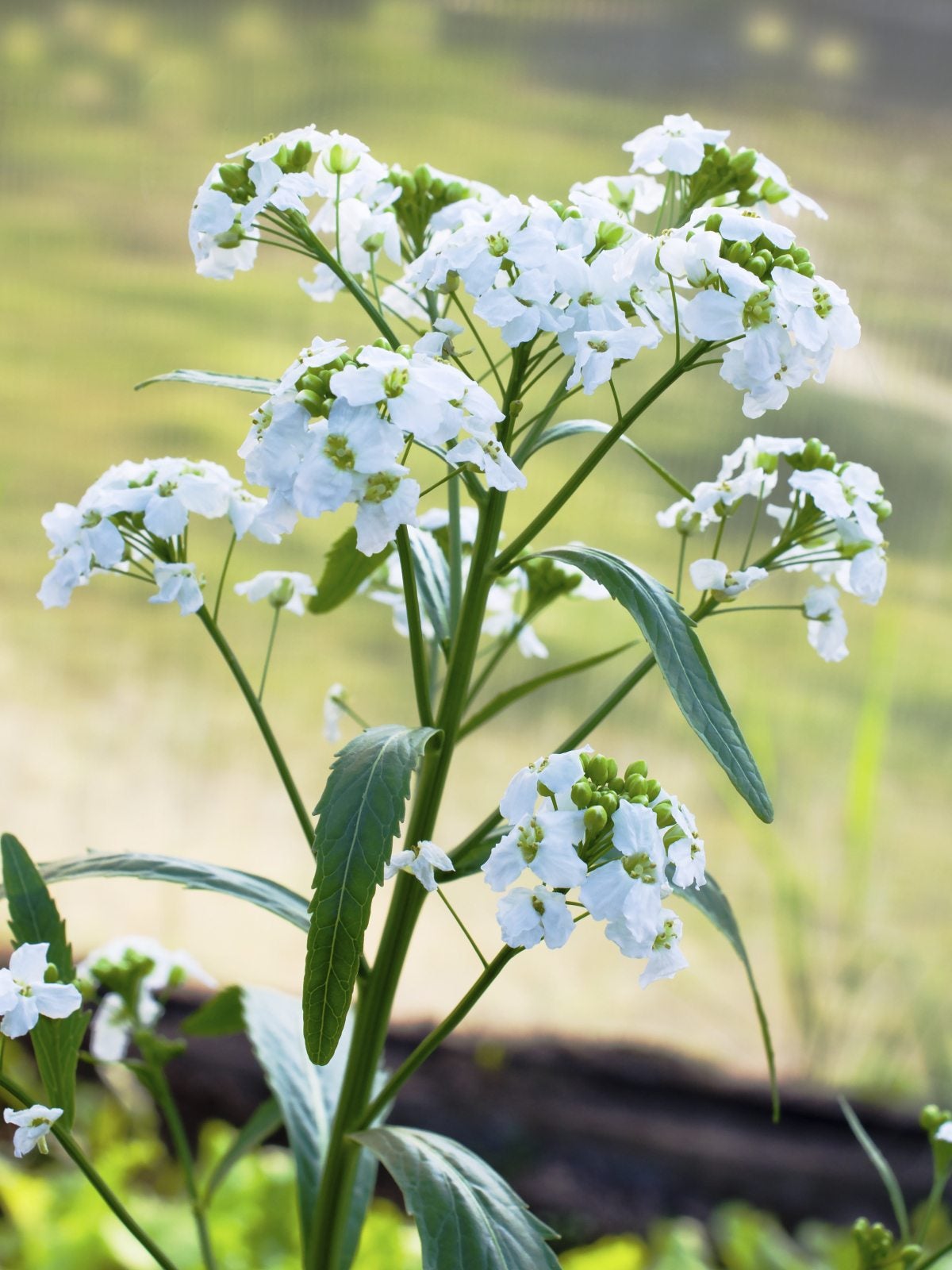 Horseradish Plant Has Flowers – Should You Cut Horseradish Flowers
Horseradish Plant Has Flowers – Should You Cut Horseradish FlowersLike its cousins, broccoli and radish, the horseradish plant has flowers. The question is, are horseradish flowers edible? If not, should you cut horseradish flowers? The following article will try and answer these questions. Click here to learn more.
By Amy Grant
-
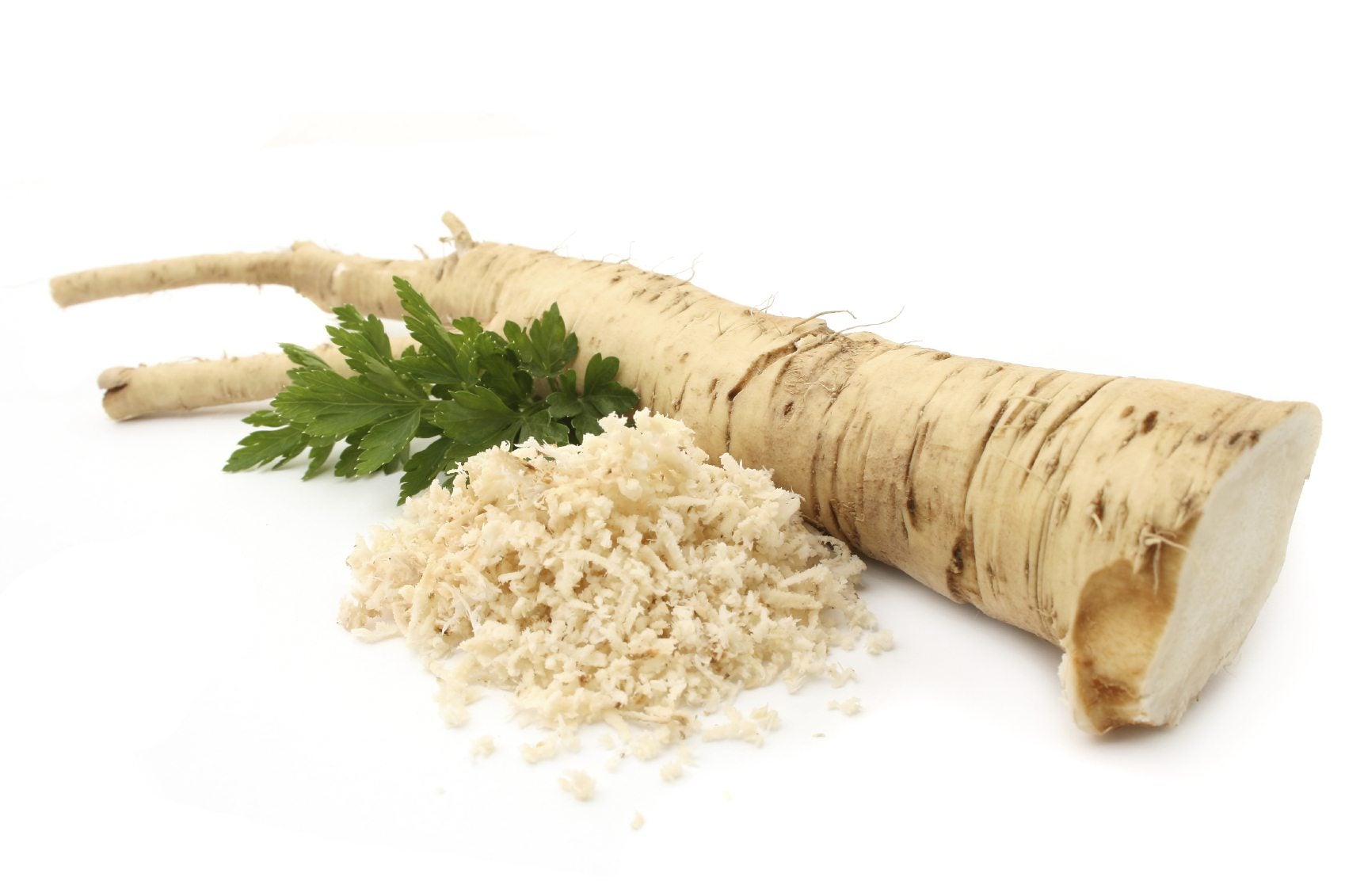 How To Make Horseradish Hot: Why Is My Horseradish Not Hot
How To Make Horseradish Hot: Why Is My Horseradish Not HotI have had some dishes where the horseradish was not hot. Perhaps there wasn?t enough horseradish sauce or maybe the sauce was old. Whatever the case, there are some tips to making spicy horseradish. This article will help with that.
By Amy Grant
-
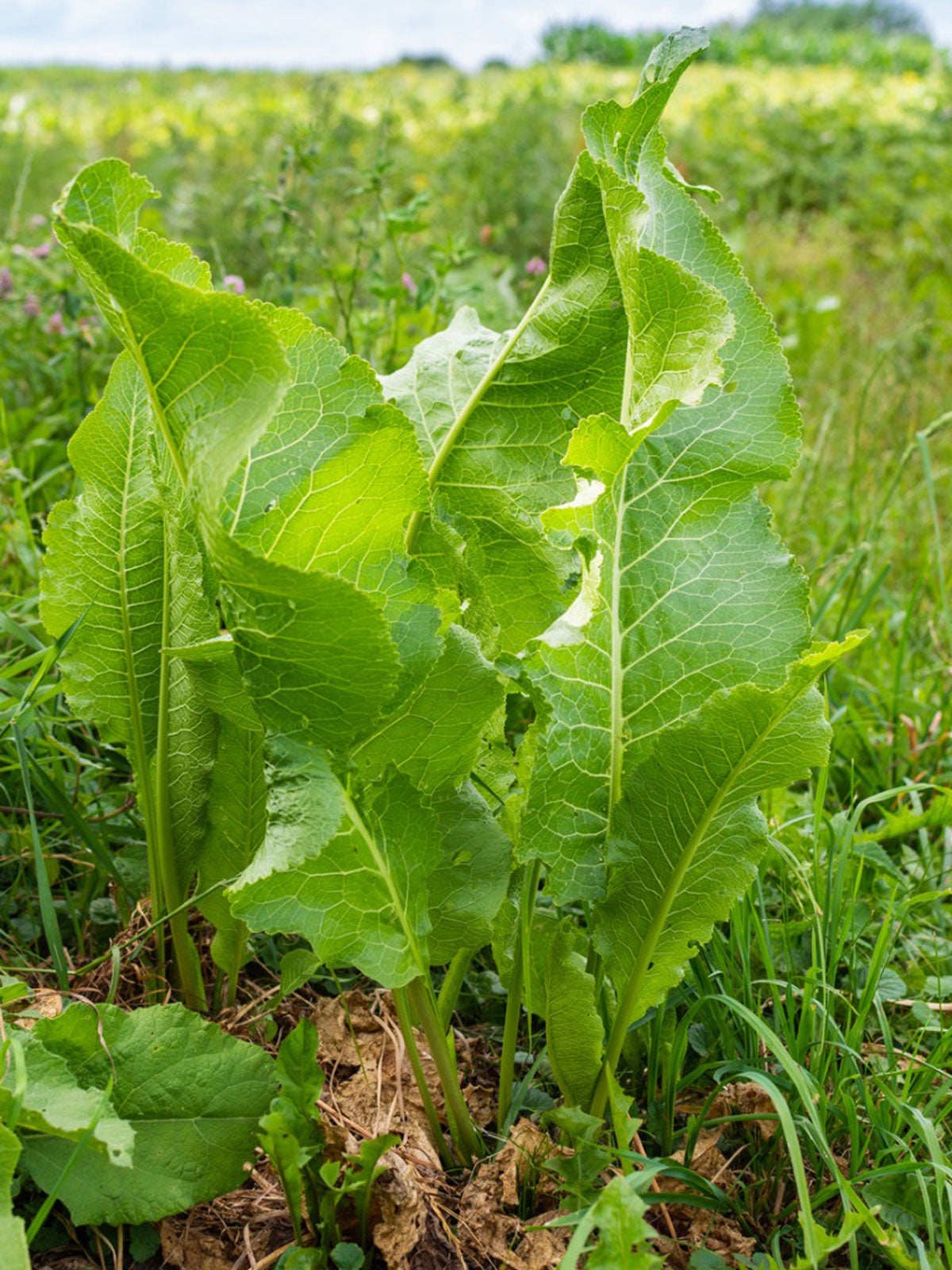 How To Control Horseradish Plants – Eliminating Horseradish From The Garden
How To Control Horseradish Plants – Eliminating Horseradish From The GardenHorseradish is prolific. Once it’s started, it will grow almost anywhere. Growing horseradish as an herb is easy, but it can become invasive and turn into an unwanted guest. If you’re wondering how to kill horseradish, click this article for help.
By Caroline Bloomfield
-
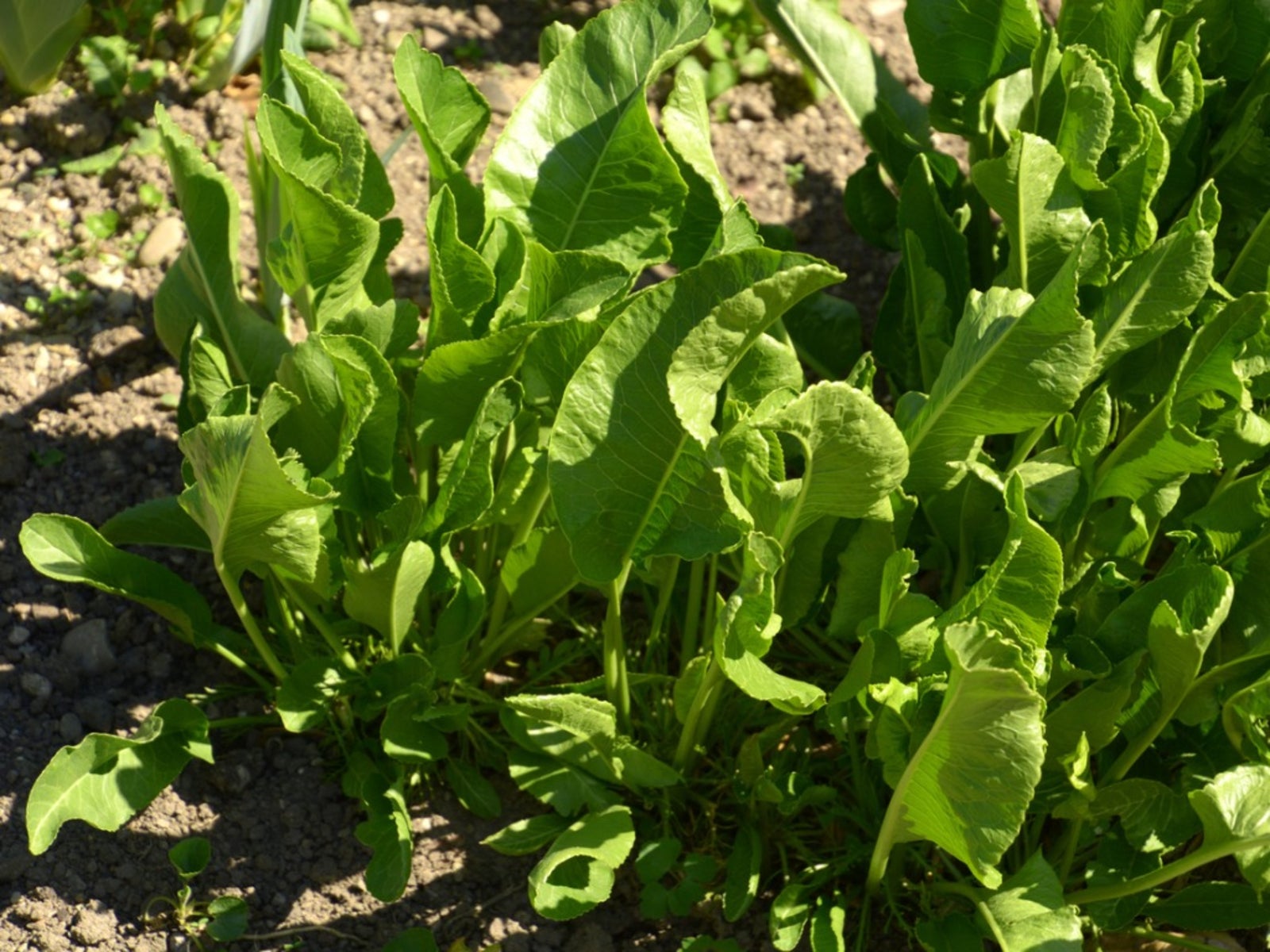 Growing Horseradish: How To Grow Horseradish
Growing Horseradish: How To Grow HorseradishOnly people who have grown horseradish in their garden know how truly pungent and delicious horseradish can be. Growing horseradish in your garden is easy. Just follow the tips found in this article.
By Heather Rhoades